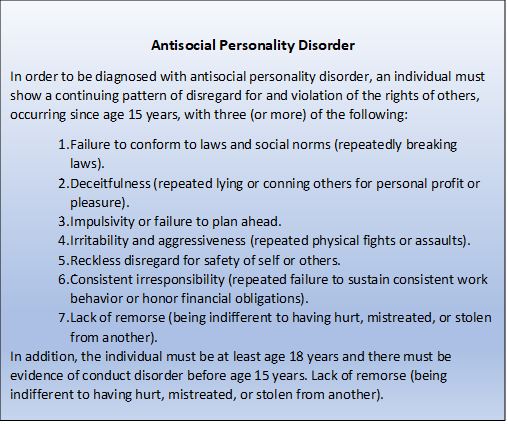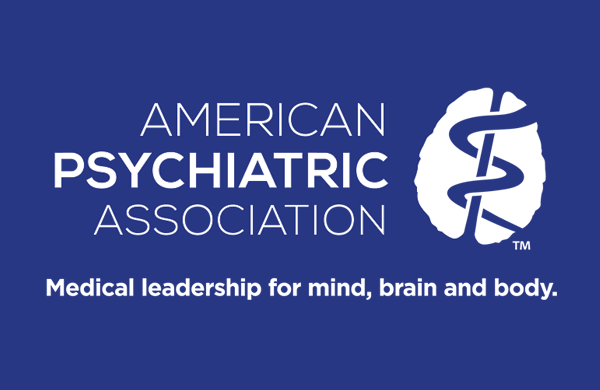Antisocial personality disorder may be one of the most misunderstood mental disorders. It is also often undiagnosed and untreated, according to a recent special report by Donald Black, M.D. in Psychiatric News.1 He referred to it as “psychiatry’s forgotten disorder,” noting that few clinicians diagnose or treat it.
Antisocial personality disorder is one of 10 types of personality disorders identified in the Diagnostic and Statistical Manual of Mental Disorders (DSM-5-TR). People with antisocial personality disorder may repeatedly disregard or violate the rights of others, may lie, deceive or manipulate others, act impulsively, or disregard their or others’ safety. They may have problems with drug or alcohol use, may violate the law, and typically show no remorse or guilt. While antisocial personality disorder is only diagnosed in adults (age 18 or older), individuals show signs earlier and may be diagnosed with conduct disorder as a child or teen. Long-term studies show that symptoms of antisocial personality disorder typically lessen as individuals age.

It is estimated to affect between .6% and 3.6% of adults and it is three times more common among men than women.2 Individuals with antisocial personality disorder often also have co-occurring mental health conditions such as depression, anxiety, bipolar disorder or substance use disorders.
Treatment
People with antisocial personality disorder may not believe there is anything wrong with them or their behavior and often don’t seek treatment. Some seek treatment for co-occurring disorders such as depression or ADHD.3 Some research has shown that treatment of impulsivity early in adolescence may help prevent later development of antisocial personality disorder.4
While there are no medications specifically approved or typically used to treat the disorder, some can be used to treat co-occurring disorders. Psychotherapy can be helpful in treating some aspects of the disorder, and there is some evidence that cognitive-behavioral therapy, mentalization-based treatment, skills training, and/or motivational interviewing can be beneficial, according to Black, co-editor of the “Textbook of Antisocial Personality Disorder.” He suggests that mental health professionals often struggle to help people with antisocial personality disorder in part because of a lack of research on empirically based treatments.
“ASPD is common, problematic, and costly to society. Infrequently diagnosed, people with [antisocial personality disorder] are rarely referred for treatment of the condition,” Black concludes. “Most likely, future treatment recommendations will involve a combination of medication to target anger, irritability, and other antisocial symptoms, while psychotherapy can be used to address the cognitive and moral aspects of the disorder.”

